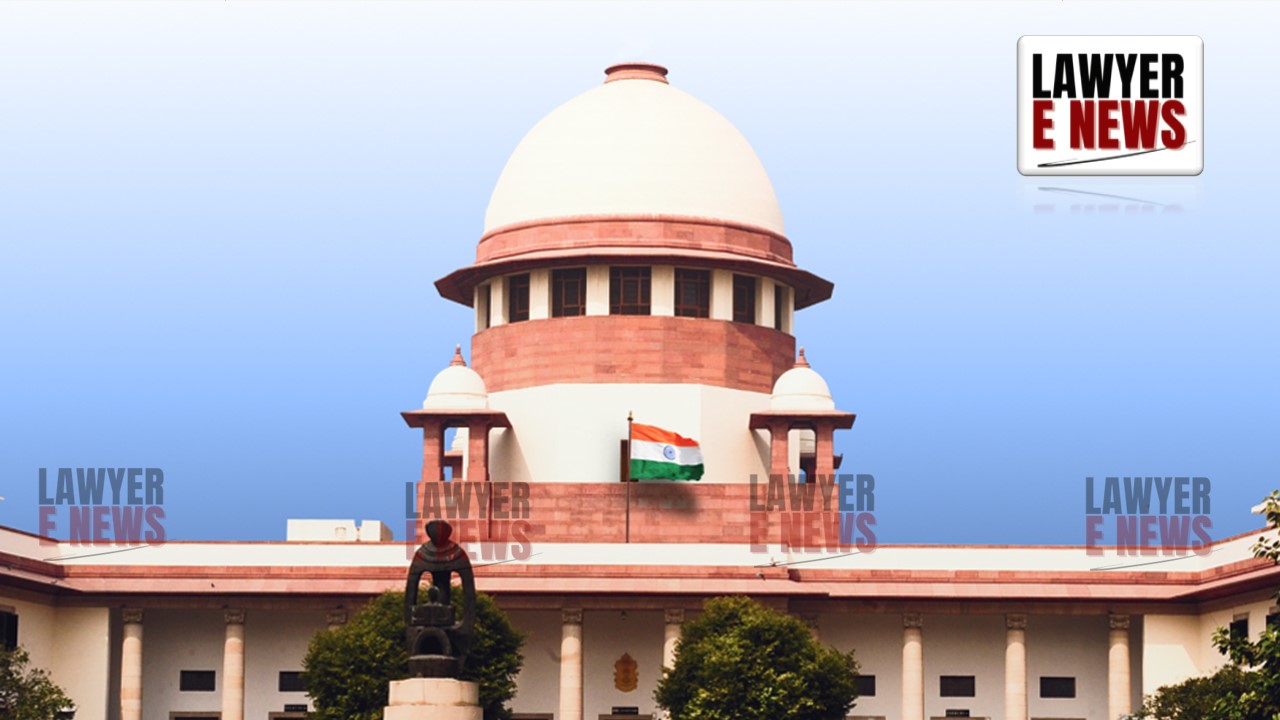-
by Admin
15 February 2026 5:35 AM



On September 10, 2024, the Supreme Court of India, in Neha Goel v. Ashish Tayal, Transfer Petition (Civil) No. 1455 of 2023, granted divorce by mutual consent under Article 142 of the Constitution and quashed all pending legal proceedings between the parties. The matter, which initially arose from a transfer petition seeking the relocation of a matrimonial case from Serampore, West Bengal to Hisar, Haryana, was amicably resolved through mediation. The parties reached a settlement agreement that addressed all disputes, including custody of their minor child and the payment of alimony.
The petitioner, Neha Goel, sought the transfer of Mat Suit No. 257 of 2023, a petition for restitution of conjugal rights filed by her husband, Ashish Tayal, under Section 9 of the Hindu Marriage Act, 1955, from the Serampore Court in West Bengal to Hisar, Haryana, where she resides. Various other cases, including those under Section 12 of the Protection of Women from Domestic Violence Act, 2005, and Section 125 CrPC, were also pending between the parties in different jurisdictions.
The Supreme Court referred the matter to the Supreme Court Mediation Centre, where the parties reached a settlement agreement dated December 4, 2023, followed by a subsequent mediation agreement on August 22, 2024, resolving all issues, including the custody of their minor child and financial arrangements.
The Supreme Court noted that both parties had agreed to divorce by mutual consent and had jointly applied for the dissolution of their marriage. Exercising its extraordinary powers under Article 142 of the Constitution, the Court granted the divorce, thereby dissolving the marriage.
"As consented by the parties, we grant a decree of divorce by mutual consent in exercise of our powers under Article 142 of the Constitution of India. In consequence, the marriage between petitioner (Neha Goel) and respondent (Ashish Tayal) shall stand dissolved." [Para 7(i)]
The settlement agreement included provisions for the custody of the parties' 22-month-old minor child, with custody awarded to the mother (petitioner) and visitation rights granted to the father (respondent). The father would have monthly virtual meetings and quarterly physical visitation supervised by the mother.
Additionally, the petitioner received a total sum of ₹28 lakhs from the respondent as full and final settlement for all alimony and maintenance claims.
"The petitioner has received a sum of ₹28,00,000/ (Rupees TwentyEight Lakhs only) towards full and final permanent alimony, including past, present, and future maintenance, and she would not raise any further claim in the future in the property of the husband or his family." [Para 7(ii)]
Complaint Case No. 66 of 2023 under Section 12 of the Domestic Violence Act before the Judicial Magistrate, Hisar.
MNT No. 95 of 2023 under Section 125 CrPC before the Principal District Judge, Family Court, Hisar.
Mat Suit No. 257 of 2023 under Section 9 of the Hindu Marriage Act before the Additional District Judge, Serampore, Hooghly.
DMC No. 509 of 2023 under Section 13 of the Hindu Marriage Act before the Family Court, Hisar.
FIR No. CHI 1884/2023 under Sections 323, 406, 498A, and 506 IPC at Women Police Station, Hisar.
The Court accepted the settlement terms and quashed these cases:
"The cases mentioned in Clause 2 of the settlement agreement... shall be treated as disposed of and shall be consigned to the record." [Para 7(iv)]
Initially, the settlement denied the father visitation rights, but during subsequent mediation, both parties agreed to amend this clause. The new agreement granted the father virtual visitation once a month and quarterly physical meetings with the child, supervised by the mother. The Court found this arrangement to be in the best interests of the child.
"As per the said report, the parties have also agreed to the additional terms and are ready to ignore clause (3) of the previous settlement. The subsequent settlement allows visitation rights to the father." [Para 4]
Divorce by Mutual Consent: The Court granted divorce by mutual consent under Article 142 and dissolved the marriage.
Full and Final Settlement: The petitioner acknowledged receiving ₹28 lakhs as full and final settlement for alimony and maintenance. The Court confirmed that no further claims would be raised by either party in the future regarding property or maintenance.
Quashing of Cases: All pending cases, including those under the Domestic Violence Act, Section 125 CrPC, and other related proceedings, were quashed.
Visitation Rights: The father was granted monthly virtual visitation and quarterly physical meetings with the minor child, as agreed in the subsequent mediation.
Final Settlement Agreement: The Court incorporated the settlement agreements dated December 4, 2023, and August 22, 2024, into its order, making them part of the official record.
"The Settlement Agreements dated 04.12.2023 and 22.08.2024 are on record and be treated as part of this order." [Para 8]
The Supreme Court’s decision to grant divorce by mutual consent and quash all ongoing legal proceedings underscores the importance of amicable resolution in matrimonial disputes. The Court’s intervention through mediation allowed the parties to reach a comprehensive settlement, ensuring a peaceful separation and addressing key issues like custody, visitation rights, and financial arrangements.
Date of Decision: September 10, 2024
Neha Goel v. Ashish Tayal
